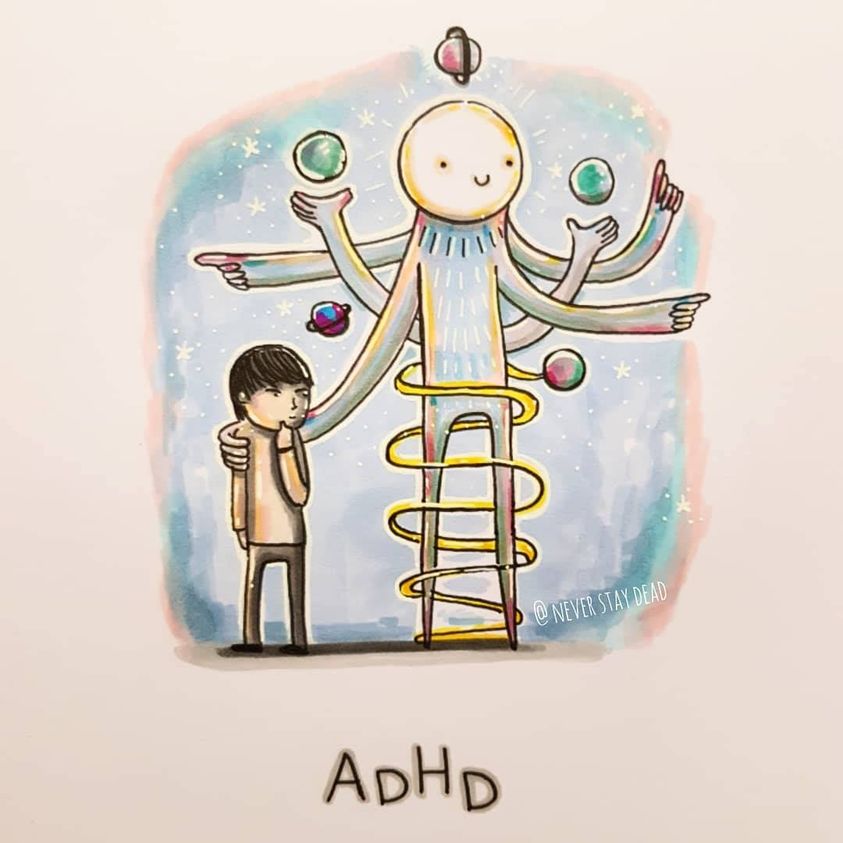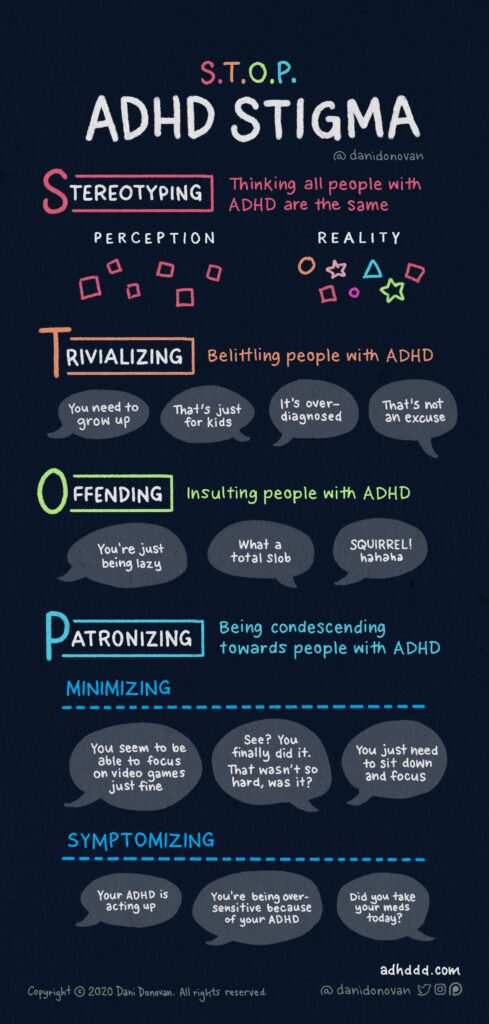Introduction
Living with ADHD comes with its set of challenges. Finding support from other people with ADHD may make a significant difference in managing this condition. In today’s digital landscape, social media and online communities are invaluable tools for those seeking information about ADHD and looking for community. However, online ADHD communities have their own set of dynamics, ranging from feeling validated to facing stigma and misinformation.
What is ADHD?

ADHD Monster Drawing Credits to Never Stay Dead
Before discussing online ADHD communities, let’s first define what ADHD is. Attention Deficit Hyperactivity Disorder (ADHD) is a neurodevelopmental disorder that affects the brain. According to the Center for Diseases and Control (CDC), people with ADHD may talk excessively and have trouble keeping track of their belongings. Personally, I forget where I place my phone at least six times a day and unintentionally interrupt others during a conversation. I also have trouble getting started on tasks. Another person with ADHD may daydream during their classes and make careless mistakes on their homework assignments. They may also struggle with remembering to brush their teeth twice a day consistently throughout the week. The main takeaway is that everyone with ADHD will act differently from each other.
Dynamics of ADHD Online Communities in Social Media
Online ADHD communities serve as safe spaces where people living with ADHD can freely discuss their struggles with the condition and connect with others with ADHD. These individuals can feel validated and supported hearing about each other’s struggles with the disability. This in turn makes people with ADHD feel validated and supported, creating a sense of belonging. On the other hand, there are challenges navigating these spaces, such as dealing with stigma and misconceptions about ADHD.
Seeking Validation in Online ADHD Communities
One of the main benefits of online ADHD communities is that people can connect with others who have lived experiences with this condition. People can vent their frustrations with living with ADHD. For instance, it can be agonizing getting started on tasks. People with ADHD may have trouble getting started on tasks, since it’s harder for them to break down their work into more manageable chunks.
Furthermore, people with ADHD share their experiences dealing with people who don’t bother understanding ADHD and experiencing medical gaslighting. When I was in the process of obtaining an ADHD diagnosis, one psychiatrist immediately diagnosed me with bipolar disorder. I left that appointment invalidated, since the psychiatrist didn’t ask me to complete a questionnaire listing symptoms of bipolar disorder. Other people with ADHD had similar experiences with feeling invalidated by medical professionals.
All in all, these online spaces provide a haven for discussing the realities of living with ADHD from lived experience.
Challenges in Online ADHD Communities

STOP ADHD Stigma Infographic Credits to Dani Donovan
Despite the numerous advantages of online ADHD communities, they grapple with various challenges. Within these communities, some people attribute ADHD symptoms to laziness and a lack of discipline. These dismissive attitudes can exacerbate feelings of shame and inadequacy for those with ADHD. Being dismissed for having trouble managing ADHD symptoms may lead to not reaching out for support with others with ADHD and/or medical professionals.
Furthermore, it is challenging to combat the myths about ADHD. Though everyone can sometimes forget where they placed their keys sometimes, people with ADHD may struggle with remembering where they place their belongings much more often than people without ADHD.
Moreover, there is an abundance of misinformation about ADHD on social media. Since misinformation about ADHD spreads within a matter of minutes, it can be rather difficult to fact-check sources diligently. False and harmful beliefs about ADHD can misinform those who are learning more about ADHD on social media.
These challenges highlight the importance of creating supportive online spaces promoting critical thinking and understanding for individuals with ADHD.
How to Navigate Online ADHD Communities

Photo by Brigitte Tohm on Unsplash
While online ADHD communities can be beneficial, it is vital to approach them with caution. Some strategies to navigate these spaces are to practice self-care, set boundaries, and talk to medical professionals who specialize in ADHD. By being mindful of the online ADHD discourse and taking steps to protect your well-being, people with ADHD can enjoy the benefits of these spaces and minimize potential risks.
Overall, online ADHD communities are important in providing support, validation, and information for people with ADHD. By understanding the dynamics of online ADHD communities and using strategies to navigate these spaces, people can find the connection and support to thrive while living with ADHD.
If you want to read how technology affects LGBTQ+ people, read this blog post here.